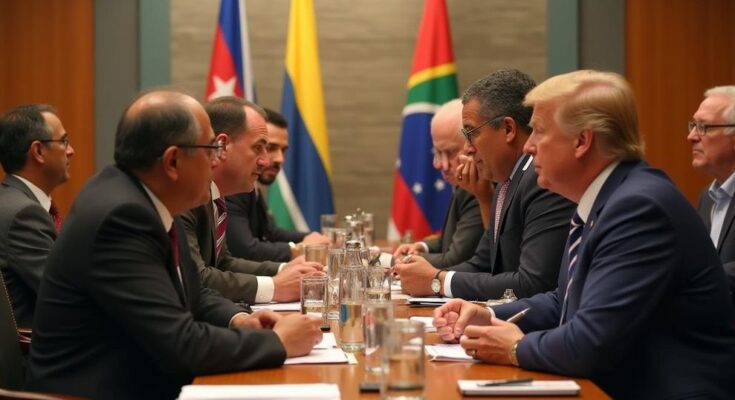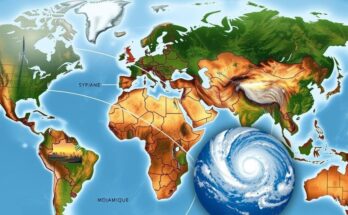Namibia and South Africa expressed their support for Cuba and Venezuela during a ministerial meeting, condemning the lengthy sanctions against Cuba and urging their cessation. They also criticized Israeli actions in Lebanon, demanded the lifting of sanctions against Zimbabwe, and addressed the issue of Western Sahara, welcoming a recent ruling from the European Court.
On October 14 and 15 in Swakopmund, Namibia, a significant ministerial meeting took place involving the Foreign Ministers of Namibia, Peya Mushelenga, and South Africa, Ronald Ozzy Lamola. During this assembly, both nations reaffirmed their solidarity with Cuba and Venezuela, emphasizing the adverse economic repercussions stemming from unilateral sanctions imposed against these Latin American countries. Particularly, the ministers denounced the longstanding economic, financial, and commercial blockade against Cuba, which has been enforced by the United States for over six decades, and called for its immediate cessation. In addition to their support for Cuba and Venezuela, the ministers condemned the Israeli military actions in Lebanon, asserting that such actions represent severe violations of sovereignty and international humanitarian law. They urged the global community and the United Nations Security Council to reinforce adherence to international law. Furthermore, the meeting addressed the issue of sanctions imposed on Zimbabwe, which both ministers deemed illegal, arguing that these sanctions detrimentally affect the socioeconomic progress of Zimbabwe and the broader Southern African region. The ministers called for their prompt and unconditional withdrawal. The discussions also included the situation concerning Western Sahara, wherein the ministers welcomed the October 4, 2024 ruling from the Court of Justice of the European Union (CJEU), which identified that the European Commission violated the right to self-determination of the people of Western Sahara. Overall, this ministerial meeting encapsulated the commitment of Namibia and South Africa to advocate for the rights and economic sovereignty of nations facing external pressures due to sanctions and other international concerns.
The context of this article revolves around the geopolitical dynamics affecting Cuba and Venezuela as they confront economic challenges resulting from foreign-imposed sanctions. Both Namibia and South Africa have historic and political ties to anti-imperialist movements and have consistently advocated for the self-determination of nations subjected to external pressures. The meeting underscores their commitment to fostering international cooperation in adhering to humanitarian laws and supporting economic sovereignty within the southern African region. The geopolitical focus also highlights conflicts such as those in Western Sahara and the implications of international law concerning territorial rights and sovereignty.
In summary, the recent ministerial meeting held in Namibia underscores the commitment of both Namibia and South Africa to support Cuba and Venezuela amid economic sanctions. The discussions articulated a clear condemnation of unlawful sanctions against multiple nations, alongside calls for adherence to international humanitarian law and respect for sovereignty. The collective stance demonstrated a unified voice advocating for global justice and economic sovereignty.
Original Source: www.plenglish.com




